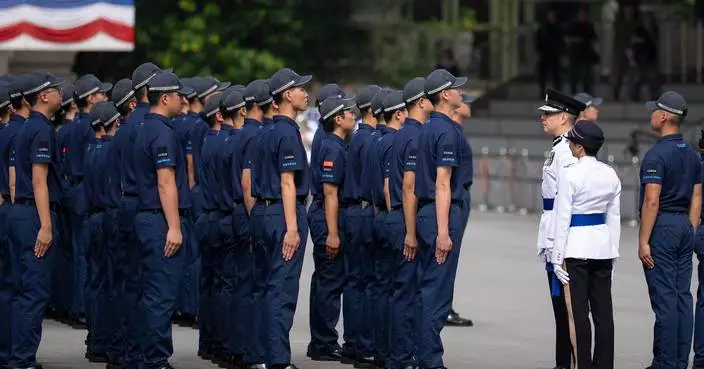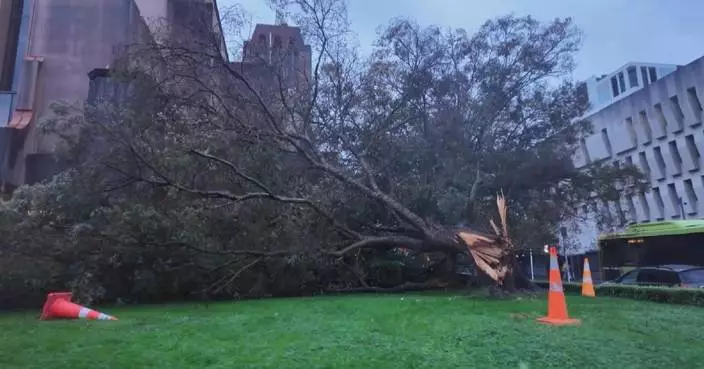Air Pollution Control (Amendment) Ordinance 2025 comes into operation
The Air Pollution Control (Amendment) Ordinance 2025 (the Amendment Ordinance) comes into operation today (April 11) to update the Air Quality Objectives (AQOs) and strengthen the control of unlicensed specified process (SP) operations.
The Amendment Ordinance tightens five existing AQOs and adds three parameters newly introduced by the World Health Organization (WHO) to the WHO Global Air Quality Guidelines (see Annex). In addition, the Amendment Ordinance provides transitional arrangements for designated projects for which environmental permits (EPs) have been issued under the Environmental Impact Assessment Ordinance (Cap. 499) before April 11 this year. If applications for variation of EPs of these projects are submitted within 36 months from the day that the new AQOs come into operation, the Government will adopt the pre-amended AQOs as the approval criteria.
As regards the tightened control over unlicensed SP operations, after the Amendment Ordinance come into operation, the Director of Environmental Protection may issue a closure notice to the operator of a premise if he believes that a SP is being carried out on any premises without a SP licence. If the operator fails to comply with the requirements of the closure notice to stop the conduct of the concerned SP, a maximum penalty, upon conviction, is a fine of $1,000,000 and imprisonment for 12 months. The Amendment Ordinance also amends the scope of "cement works" and the definition of "premises", including regulating "cement works" carried out on ships or barges, which are subject to control of the SP licensing regime.
A spokesman for the Environmental Protection Department (EPD) said, "To enable cement operators brought under the control of the Amendment Ordinance to apply for SP licences from the EPD in a timely manner, the EPD will put in place a six-month transitional arrangement, during which the cement operations newly brought under control will not be regarded as unlicensed operations. The transitional arrangement does not apply to cement operations that are already subject to control under the original Air Pollution Control Ordinance."
Civil Aid Service Cadet Corps holds 147th New Cadets Passing-out Parade
The Civil Aid Service (CAS) Cadet Corps held the 147th New Cadets Passing-out Parade at the CAS Headquarters today (May 3). The parade was reviewed by former Hong Kong deputy to the National People's Congress Mr Ip Kwok-him.
Speaking at the parade, Mr Ip commended the 180 new cadets for their remarkable endurance, perseverance, and co-operation skills. He said he believes that they will become committed and contributing citizens in the years to come. He stressed that young people are the future, hope, and pillars of Hong Kong, as well as the engine for driving the long-term development of society and the economy.
He said that in order to nurture and guide the Cadets Corps to become patriotic and aware of the country, and to enhance their sense of social responsibility, the CAS cadets continue to actively participate in various activities. These include coastal clean-ups by kayaking, which involves cleaning marine refuse along the remote coasts of Sai Kung, and Hong Kong Tree Planting Day 2025, which focuses on tree planting to achieve carbon reduction goals. In terms of patriotic education, the CAS also organises visits for the cadets to the Hong Kong Garrison Barrack and the Hong Kong-Shenzhen Innovation and Technology Park of the Greater Bay Area, and to participate in national security education seminars to deepen their understanding of the country's development and security.
He also thanked CAS staff, members, and instructors for their hard work in nurturing young leaders.
During the parade, the Guard of Honour conducted a flag-raising ceremony, and the Bicycle Demonstration Team of the Cadet Corps staged a performance.
The CAS Cadet Corps has been encouraging the cadets over the years to participate in activities and training that are beneficial to the development of their minds and bodies, so they can acquire multifaceted skills while building their confidence and sense of responsibility. It will continue to strengthen co-operation with regional schools and diligently organise training activities related to national security education, such as Mainland exchange and study programmes, and visits to the National Security Exhibition Gallery for its members.
Recruitment of CAS cadets is open for application throughout the year. Recruitment details and application forms are available on the CAS website (www.cas.gov.hk/eng/org/cadet_corps.html).

Source: AI-generated images
















































